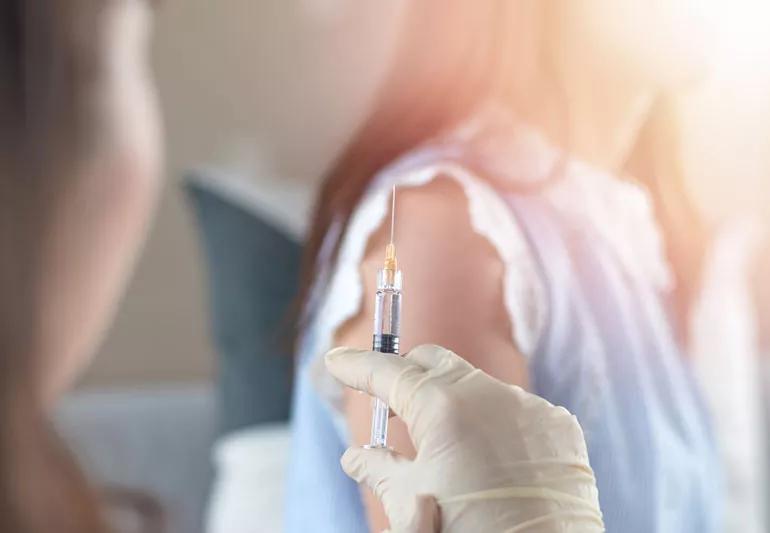Some adults may need a measles booster

Image content: This image is available to view online.
View image online (https://assets.clevelandclinic.org/transform/cf4f1723-6845-45af-9299-7ecac245e2b1/measlesVaccine-1127768922-770x553_jpg)
Woman recieving the measles vaccine
Like the bad guy in a horror movie, the measles just won’t die. The current measles outbreak continues to spread across the U.S.
Advertisement
Cleveland Clinic is a non-profit academic medical center. Advertising on our site helps support our mission. We do not endorse non-Cleveland Clinic products or services. Policy
“Measles spreads very quickly among people who aren’t protected from it,” says infectious disease specialist Kristin Englund, MD. “When somebody is coughing or sneezing, the virus can get into the air or make contact with furniture and other surfaces. It remains there for up to two hours, even after the infected person has left the room.”
But with so much information (and fear-mongering) out there about measles in adults and children, how can you protect yourself and your family? Dr. Englund lays out your options.
It seems that living in the pre-vaccine time of tuberculosis, polio and measles helps you here. “If you were born before 1957, you were most likely exposed to measles and are now immune,” Dr. Englund explains.
The measles vaccine was licensed in 1963, but until 1989, people only received one dose of it. One dose is about 93% effective, Dr. Englund says. A second dose boosts that effectiveness to 97%.
Advertisement
“There’s no harm in getting a third vaccine,” she assures.
You most likely have documented proof that you’ve been vaccinated for measles twice in the form of the MMR vaccine, which also includes vaccines for mumps and rubella.
“There are outbreaks all over the world, certainly in areas such as Israel, Ukraine, Germany and the Philippines,” Dr. Englund says.
The CDC recommends this two-dose vaccine schedule for children:
If you’re traveling with an infant 6 to 12 months old to an area with high measles risk, they can receive an early dose of the MMR vaccine. Once they turn a year old, though, they will still need the two-vaccine series.
Dr. Englund says you should talk to your doctor before getting an MMR vaccine if you are:
Advertisement

Delivered every Tuesday!
Sign up for our Health Essentials emails for expert guidance on nutrition, fitness, sleep, skin care and more
It's a letter about the news!

Every two weeks once
Sign up for our Health Essentials emails for expert guidance on nutrition, fitness, sleep, skin care and more.
Learn more about our editorial process.
Advertisement
Vaccination is a good idea before or after treatment
Bleeding is a risk and warrants taking care, but the reward of this lifesaving medication is great
Severe and debilitating headaches can affect the quality of your child’s life
With repeat injections over time, you may be able to slow the development of new wrinkles
Although it can be alarming, it’s normal to experience blood clots during menstruation
Type 2 diabetes isn’t inevitable with these dietary changes
Applying a hot or cold compress can help with pain
Pump up your iron intake with foods like tuna, tofu and turkey